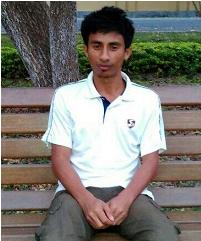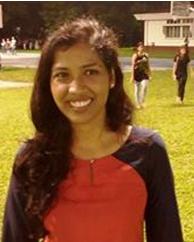Research Group
PhD Students:
MSc Project students:
Lab Alumni
1. Akash protim Gogoi ( PhD Scholar, Tezpur university )
2. Kamlesh Verma (PhD Scholar, IIT Guwahati)
3. Prakash Lama (PhD Scholar, NCBS, Bangalore)
4. Kamalakshi Deka (PhD Scholar, Tezpur university, Assam)
5. Surajit Chakrabarty (PhD Scholar, NBRC, New delhi)
6. Gautam Sarkar (Phd Scholar, NII, New Delhi)
7. Pooja Rani Kuri (PhD Scholar, IIT, Guwahati)
8. Moumita Sarkar (PhD Scholar, NII, New Delhi)
9. Pratitusti Basu
10. Mousumi Borah
11. Raja Baishya
Research Project
SERB EMR Programme 2017-2020, DST, Govt. of India, (50.7 lakhs) PI.
SERB EEQ Programme 2017-2020, DST, Govt. of India, (48.7 lakhs) PI.
Twining Programme 2014-2017, DBT, Govt. of India (Fund for TU: 45.05 lakhs), Co-PI
Twining Programme 2013-2016, DBT, Govt. of India (Fund for TU: 56.10 lakhs), PI.
Research Publications
Research articles
Deka K, Singh A, Chakraborty S, Mukhopadhyay R, Saha S. Protein arginylation regulates cellular stress response by stabilizing HSP70 and HSP40 transcripts. Cell Death Discov. 2016 Oct 3;2:16074. eCollection 2016.
Hussain N, Singh A, Saha S, Venkata Satish Kumar M, Bhattacharyya P, Bhattacharya SS. Excellent N-fixing and P-solubilizing traits in earthworm
gut-isolated bacteria: A vermicompost based assessment with vegetable market waste and rice straw feed mixtures. Bioresour Technol. 2016 Dec;222:165-174.
Purkayastha MD, Borah AK, Saha S, Manhar AK, Mandal M, Mahanta CL. Effect of maleylation on physicochemical and functional properties of rapeseed protein isolate. Journal of Food Science and Technology. 2016:1-4.
Zhang F, Patel DM, Colavita K, Rodionova I, Buckley B, Scott DA, Kumar A, Shabalina SA, Saha S, Chernov M, Osterman AL. Arginylation regulates purine nucleotide biosynthesis by enhancing the activity of phosphoribosyl pyrophosphate synthase. Nature communications. 2015 Jul 15;6.
Lian L, Suzuki A, Hayes V, Saha S, Han X, Xu T, Yates JR, Poncz M, Kashina A, Abrams CS. Loss of ATE1-mediated arginylation leads to impaired platelet myosin phosphorylation, clot retraction, and in vivo thrombosis formation. Haematologica. 2014 Mar 1;99(3):554-60.
Kurosaka S, Leu NA, Pavlov I, Han X, Ribeiro PA, Xu T, Bunte R, Saha S, Wang J, Cornachione A, Mai W, Yates JR 3rd, Rassier DE, Kashina A. Arginylation regulates myofibrils to maintain heart function and prevent dilated cardiomyopathy. J Mol Cell Cardiol. 2012 Sep;53(3):333-41.
Zhang F, Saha S, Kashina A. Arginylation-dependent regulation of a proteolytic product of talin is essential for cell-cell adhesion. J Cell Biol. 2012 Jun 11; 197(6):819-36.
Saha S, Wang J, Buckley B, Wang Q, Lilly B, Chernov M, Kashina A. Small molecule inhibitors of arginyltransferase regulate arginylation-dependent protein degradation, cell motility, and angiogenesis. Biochem Pharmacol. 2012 Apr 1;83(7):866-73.
Saha S, Wong CC, Xu T, Namgoong S, Zebroski H, Yates JR 3rd, Kashina A. Arginylation and methylation double up to regulate nuclear proteins and nuclear architecture in vivo. Chem Biol. 2011 Nov 23; 18(11):1369-78.
Wang J, Han X, Saha S, Xu T, Rai R, Zhang F, Wolf YI, Wolfson A, Yates JR 3rd, Kashina A. Arginyltransferase is an ATP-independent self-regulating enzyme that forms distinct functional complexes in vivo. Chem Biol. 2011 Jan 28;18(1):121-30.
Zhang F, Saha S, Shabalina SA, Kashina A. Differential arginylation of actin isoforms is regulated by coding sequence-dependent degradation. Science. 2010 Sep 17;329 (5998):1534-1537.
Kurosaka S, Leu NA, Zhang F, Bunte R, Saha S, Wang J, Guo C, He W, Kashina A. Arginylation-dependent neural crest cell migration is essential for mouse development. PLoS Genet. 2010 Mar 12;6(3)
Saha S, Mundia MM, Zhang F, Demers RW, Korobova F, Svitkina T, Perieteanu AA, Dawson JF, Kashina A. Arginylation Regulates Intracellular Actin Polymer Level by Modulating Actin Properties and Binding of Capping and Severing Proteins. Mol Biol Cell. 2010 Apr; 21(8):1350-61.
Saha S, Datta K, Rangarajan P. Characterization of mouse neuronal Ca2+/calmodulin kinase II inhibitor alpha. Brain Res. 2007 May 7;1148:38-42.
Saha S, Sugumar P, Bhandari P, Rangarajan PN. Identification of Japanese encephalitis virus-inducible genes in mouse brain and characterization of GARG39/IFIT2 as a microtubule-associated protein. J Gen Virol. 2006 Nov;87(Pt 11):3285-9.
Saha S, Ramanathan A, Rangarajan PN. Regulation of Ca2+/calmodulin kinase II inhibitor alpha (CaMKIINalpha) in virus-infected mouse brain. Biochem Biophys Res Commun. 2006 Nov 17;350(2):444-9.
Saha S, Murthy S, Rangarajan PN. Identification and characterization of a virus-inducible non-coding RNA in mouse brain. J Gen Virol. 2006 Jul;87(Pt7):1991-5.
Saha S, Rangarajan PN. Common host genes are activated in mouse brain by Japanese encephalitis and rabies viruses. J Gen Virol. 2003 Jul;84(Pt 7):1729-35.
Reviews and Commentaries
Deka K, Saha S. Arginylation: a new regulator of mRNA stability and heat stress response. Cell Death Dis. 2017 Feb 9;8(2):e2604.
Saha S, Kashina A. Posttranslational arginylation as a global biological regulator. Dev Biol. 2011 Oct 1;358(1):1-8.
Book Chapter:
Saha S, Wang J, Kashina AS. High-Throughput Arginylation Assay in Microplate Format. Protein Arginylation: Methods and Protocols. 2015:79-82.








